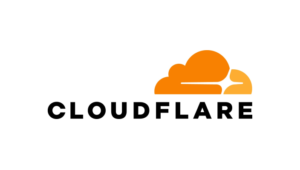Transactional emails are the cornerstone of any online business’s communication strategy. Triggered by user actions, these emails deliver crucial information and enhance customer engagement. Whether you’re sending welcome messages, order confirmations, password resets, or other alerts, a reliable and user-friendly email delivery platform is essential to ensure successful email delivery.
Choosing the right solution from the many available can be daunting, as each has its unique strengths. To simplify your decision-making process, we’ve analyzed over 100 transactional email tools and selected the top 10 for 2024.
1. UniOne

ALT: UniOne is the most user-friendly and cost-effective transactional email solution
UniOne is an API-first, user-centric email delivery platform with positive customer reviews, suitable for various industries from SaaS startups to fintech and e-commerce.
Pros:
- Quick and easy onboarding
- Detailed email tracking and reporting
- Friendly 24/7 support
- Cost-effective pricing with a free trial
- White-labeling option
Cons:
- Limited integrations compared to competitors
- Basic feature set lacking advanced A/B testing or opt-in scenarios
Best For: Small to medium-sized businesses looking for an easy start in email delivery without high costs.
Pricing: Four-month free trial with 6,000 monthly email credits; prices range from $0.28 to $0.66 per 1000 emails.
2. Postmark

ALT: Postmark
Postmark, now part of ActiveCampaign, focuses on high-speed delivery with its shared IP pools, ensuring excellent deliverability rates and a user-friendly interface.
Pros:
- Outstanding email delivery rates
- Ability to separate different types of emails into streams
- Comprehensive email management and analytics features
- Wide range of ready-to-use software libraries
- Inbound email management
Cons:
- High costs
- Selective about industries it works with
Best For: Enterprises focused on email list management, seeking the best deliverability scores without budget constraints.
Pricing: 100 emails per month for free; prices range from $0.51 to $1.50 per 1000 emails.
3. SendGrid

ALT: SendGrid
SendGrid is renowned for its scalability and performance with large sending volumes.
Pros:
- Extensive email creation support
- Robust analytics with optional add-ons
- Scalability and reliability for large volumes
- Email marketing features
- Premium support to improve email performance (extra cost)
Cons:
- High cost for advanced features
- Complex onboarding and poor customer support on free and basic plans
Best For: Enterprises and high-volume senders needing advanced features and scalability.
Pricing: Free for 100 daily emails; API plans range from $0.35 to $0.89 per 1000 emails.
4. Mailgun

ALT: Mailgun
Mailgun offers a developer-focused approach with powerful APIs and flexible integration options.
Pros:
- Comprehensive API documentation and numerous libraries
- Proven deliverability and performance
- Detailed logs and analytics
- Expert consulting for enterprises
- Email parsing feature
Cons:
- Hard-to-reach customer support
- High prices
Best For: Developers and tech-savvy businesses needing deep customization.
Pricing: Up to 2,500,000 free emails for the first month with an instant subscription, or 100 emails per day for free with one sending domain; basic plans range from $0.50 to $1.50 per 1000 emails.
5. Elastic Email

ALT: Elastic Email
Elastic Email, a Polish ESP, offers email API, SMTP relay, and email marketing features, supported by a responsive team.
Pros:
- Responsive support
- Friendly onboarding
- Email marketing features
- Incoming emails management
- Affordable pricing for basic functionality
Cons:
- Reports of low deliverability with shared IP pools
- Many features available only in expensive “Pro” plans
- Free trial allows sending emails only to the account’s own email address
Best For: Solopreneurs and startups needing an easy-to-set-up email solution.
Pricing: SMTP/API usage costs between $0.12 and $0.98 per 1000 emails, with separate pricing for additional email marketing features.
6. Mailchimp Transactional

ALT: Mailchimp Transactional
Mailchimp Transactional (formerly Mandrill) is Mailchimp’s solution for sending data-driven transactional emails.
Pros:
- Easy management from the Mailchimp account
- Comprehensive API functionality
- High deliverability with millions of users
- Catchy email templates
- User-friendly interface
Cons:
- Only available to Mailchimp users with a paid email marketing plan
- Higher cost compared to most other services
Best For: Mailchimp users sending at least 25,000 emails monthly, looking for transactional email management from the same provider.
Pricing: $0.40 to $2 per 1000 emails; additional $20 for the email marketing plan.
7. Resend

ALT: Resend
Resend is a developer-focused email tool gaining popularity after its success on Product Hunt in 2023.
Pros:
- Variety of SDKs for many programming languages
- Friendly online developer community
- Test mode for experiments
- High deliverability rates
- Competitive prices
Cons:
- Lacking ready-to-use email templates or drag-n-drop builder
- Limited data retention period for standard plans
Best For: Tech-savvy teams without a need for long-term email data retention.
Pricing: 100 emails per day for free with one sending domain; basic plans range from $0.24 to $0.40 per 1000 emails.
8. Brevo

ALT: Brevo
Brevo (formerly Sendinblue) offers a suite of communication tools, including transactional emails, all in one platform.
Pros:
- Comprehensive 360-degree approach
- Outstanding personalization and customization features
- Guaranteed 99% email delivery rates via API
- Extensive guides, libraries, SDKs, and CMS integrations
- Extended log retention and history tracking
Cons:
- Feature-rich plans are expensive
- Account blocking without clear explanations or support access
Best For: Businesses seeking an omnichannel communication solution.
Pricing: Free for 300 emails per day; additional emails cost $0.55 to $0.75 per 1000.
9. Mailtrap

ALT: Mailtrap
Mailtrap was designed for development teams to safely test email integration and verify email performance.
Pros:
- Excellent testing and debugging features
- Spam checker and HTML validator
- 24/7 live assistance
- Additional analytics for Outlook, Google Workspace, and Office 365
- Over 20 ready-to-use integrations
Cons:
- Limited email-sending functionality as it’s relatively new
- Short data retention period at lower plans
Best For: Software developers needing a multifunctional email testing environment.
Pricing: 1000 emails per month for free; paid options range from $0.50 to $1.50 per 1000 emails depending on sending volumes and features.
10. Bird

ALT: Bird
Bird (also known as MessageBird, formerly Sparkpost) is one of the largest cloud-based mail transfer agents, processing over 4 trillion emails annually.
Pros:
- Additional communication channels like SMS and WhatsApp
- Monitoring tools for inbox placement
- Adaptive algorithms for real-time email traffic adjustment
- Impressive sending speed of 500 million emails per hour
- Ensured scalability
Cons:
- Tricky initial setup
- Complicated pricing structure based on the number of contacts
Best For: Large enterprises building an omnichannel infrastructure.
Pricing: Based on the number of contacts, ranging from $0.88 to $1.50 per 1000 emails.
الخاتمة
Choosing a reliable partner for transactional email delivery can be challenging. While almost any service can suffice for sending a few emails without guaranteed delivery, serious businesses require a specialized email service provider. Fortunately, 2024 offers various options to fit different requirements and budgets. We hope this roundup helps you find the best solution for distributing critical emails to your audience.
نقترح عليك أيضاً قراءة المقال: Best Cloud PBX Software with Call Tracking 2024.
بالإضافة إلى أفضل 10 شركات إنشاء روبوتات الدردشة الآلية في عام 2024.








